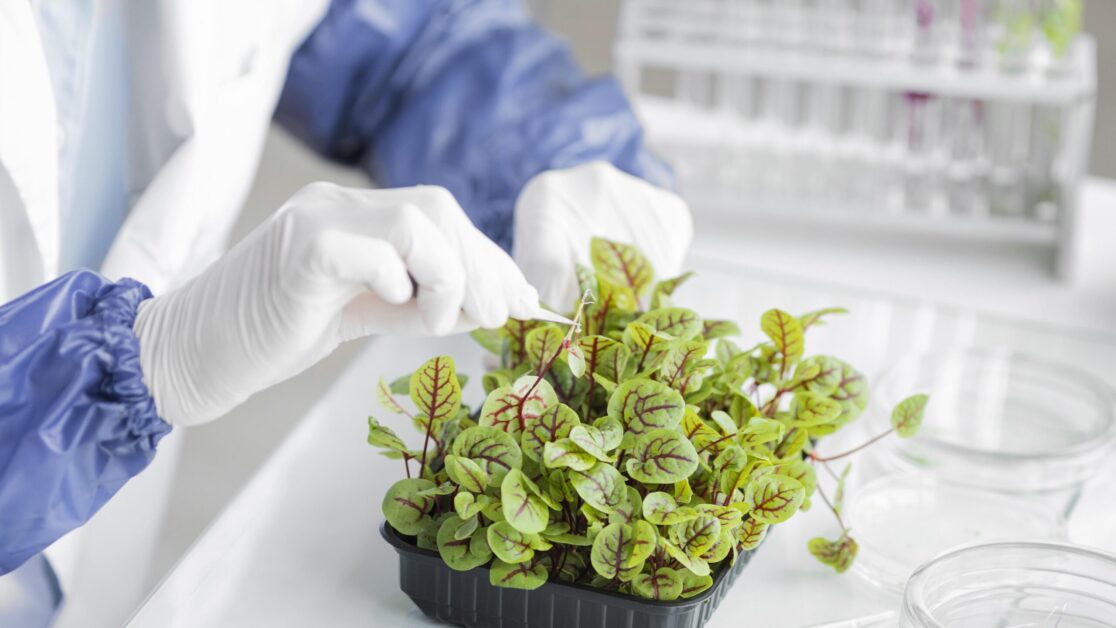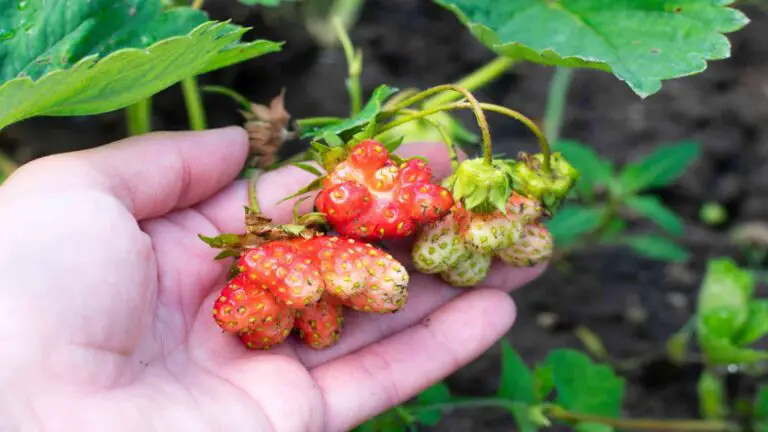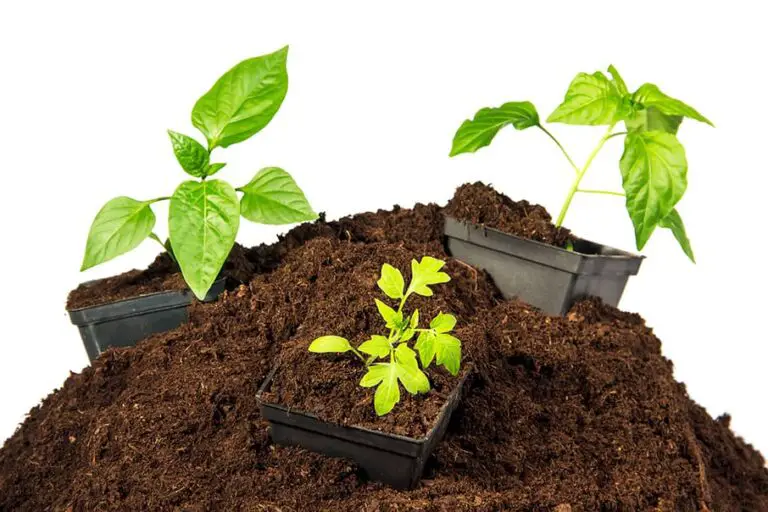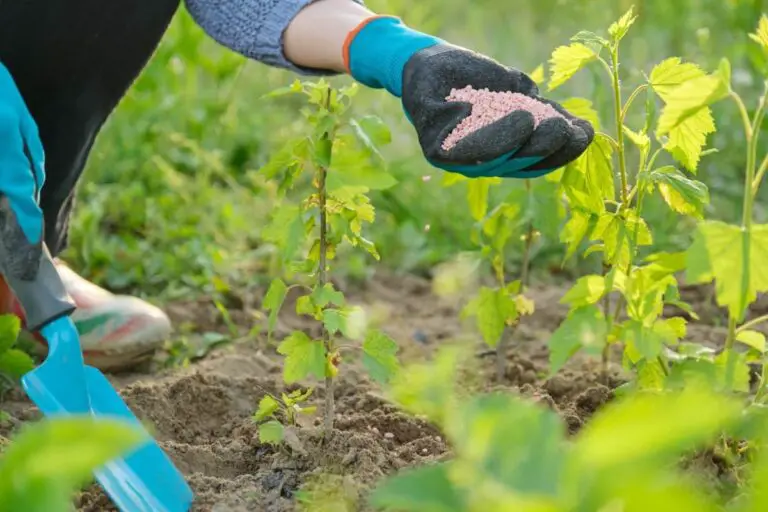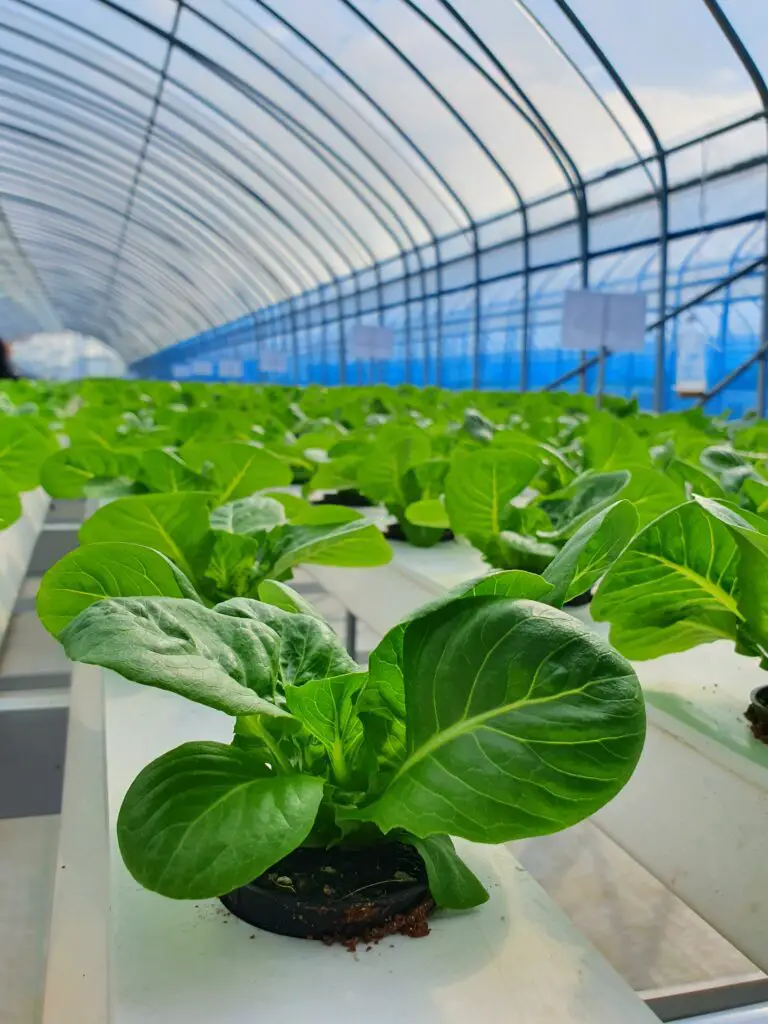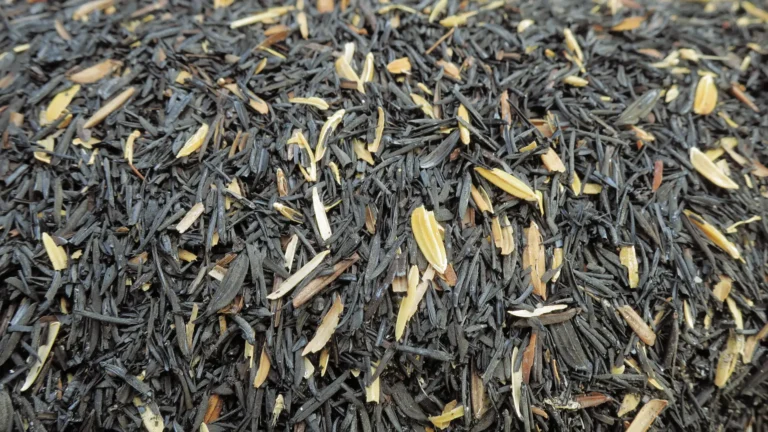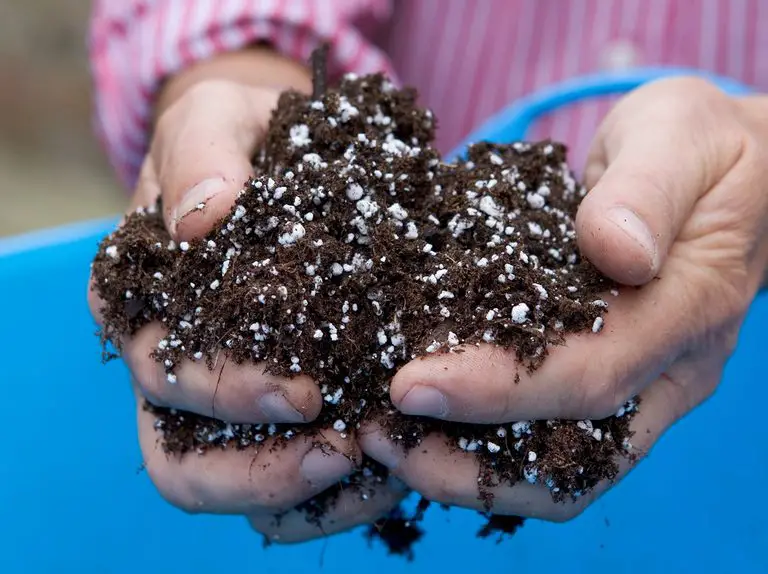Is Hydrogen Peroxide Good for Plants? How to Use This Common Household Product for Your Plants
Table of Contents
Is Hydrogen Peroxide Good for Plants?
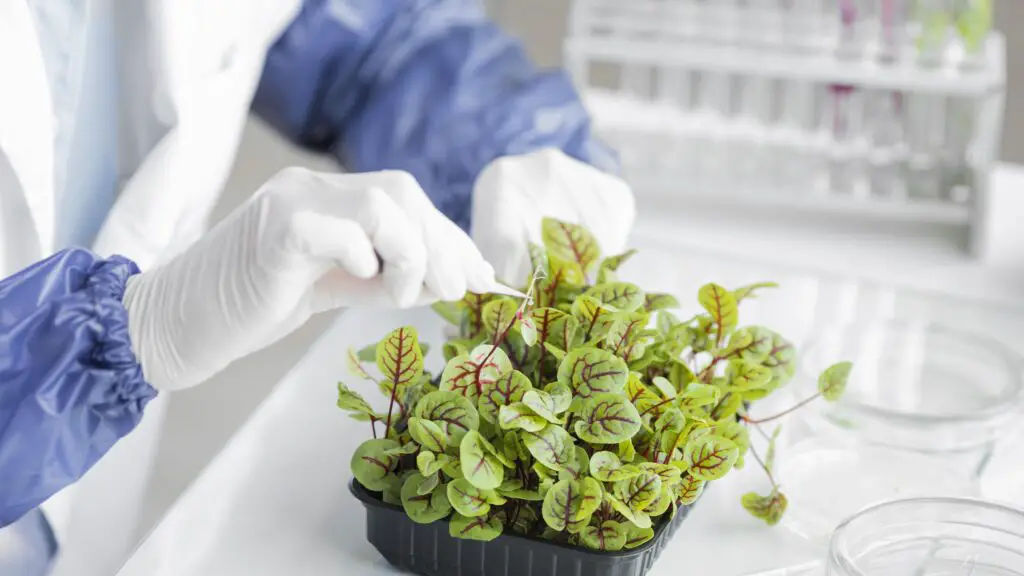
B. Maximizing the efficiency of fertilizers and plant food
Maximizing the efficiency of fertilizers and plant food is a crucial aspect of achieving optimal plant growth and health in both traditional and hydroponic systems. By employing smart fertilization practices, gardeners can ensure that their plants receive the correct balance of essential nutrients, leading to improved yields and overall crop quality.
One effective strategy to enhance fertilizer efficiency is through the use of slow-release or controlled-release fertilizers. These specialized fertilizers contain nutrients encapsulated within a coating that slowly breaks down over time, releasing the nutrients gradually to the plant roots. This controlled release mechanism prevents nutrient leaching and reduces the need for frequent fertilizer applications, resulting in cost savings and minimized environmental impact. Additionally, slow-release fertilizers provide a consistent supply of nutrients to plants, which reduces the risk of nutrient deficiencies or toxicities and promotes more balanced growth.
Another technique to maximize fertilizer efficiency is foliar feeding. This method involves applying liquid fertilizers directly to the leaves of plants, allowing for rapid nutrient absorption. With foliar feeding, nutrients can bypass the traditional soil uptake route, providing a quick and efficient boost to nutrient levels in the plant. This approach is particularly beneficial when plants are facing nutrient deficiencies or when the root system is compromised. However, it is important to note that foliar feeding should not replace regular soil or hydroponic fertilization, as the majority of a plant’s nutrient needs are still met through root uptake.
III. Disease Prevention and Control with Hydrogen Peroxide
Hydrogen peroxide, with its powerful antimicrobial properties, can be an effective tool in disease prevention and control in hydroponic systems. By harnessing the oxidizing power of hydrogen peroxide, gardeners can mitigate the risk of root rot, fungal infections, and other plant diseases. These types of diseases can be especially detrimental in hydroponic systems where the roots are constantly exposed to water and nutrient solutions.
One of the key benefits of using hydrogen peroxide is its ability to combat anaerobic conditions and promote oxygenation in the root zone. Anaerobic conditions, characterized by a lack of oxygen, can lead to root suffocation and create an ideal environment for harmful pathogens to thrive. Oxygenating the hydroponic solution with hydrogen peroxide helps prevent these anaerobic conditions, ensuring the roots have a constant supply of oxygen for optimal growth and health. Additionally, hydrogen peroxide can directly target and destroy harmful pathogens, mitigating the risk of disease outbreaks and promoting a healthier growing environment for plants in hydroponic systems.
Here’s a table summarizing the potential benefits and considerations of using hydrogen peroxide for plants: Is Hydrogen Peroxide Good for Plants?
| Aspect | Description |
|---|---|
| Root Oxygenation | Benefit: Hydrogen peroxide can help oxygenate the roots by releasing oxygen, promoting a healthier root system in plants. |
| Disease Prevention | Benefit: Hydrogen peroxide may have antifungal and antibacterial properties, helping prevent root rot and other diseases. |
| Soil Aeration | Benefit: When used in soil, hydrogen peroxide can improve aeration by breaking down and loosening compacted soil. |
| Pest Control | Consideration: Hydrogen peroxide may have limited effectiveness against certain pests and is not a substitute for dedicated pest control methods. |
| Stress Response | Benefit: Some studies suggest that hydrogen peroxide may induce stress responses in plants, enhancing resilience. |
| Nutrient Uptake | Consideration: While hydrogen peroxide can improve oxygenation, excessive use may affect nutrient availability negatively. |
| Concentration and Dilution | Consideration: Proper dilution is crucial, as high concentrations of hydrogen peroxide can be harmful to plant tissues. |
| Application Frequency | Consideration: Overuse or frequent application may lead to adverse effects, so it’s important to follow recommended guidelines. |
| Compatibility with Soil Amendments | Consideration: Hydrogen peroxide may interact with certain soil amendments or fertilizers, affecting their efficacy. |
| pH Level Impact | Consideration: Hydrogen peroxide can alter pH levels, and its use should be monitored to avoid significant pH fluctuations. |
| Environmental Impact | Consideration: Consider the environmental impact, and use hydrogen peroxide responsibly, taking into account runoff and other factors. |
It’s important to note that while hydrogen peroxide can have potential benefits for plants, its use should be approached with caution, and proper guidelines should be followed to avoid any adverse effects. Always conduct thorough research and consider the specific needs of your plants before incorporating hydrogen peroxide into your gardening practices.
A. Is Hydrogen Peroxide Good for Plants? Harnessing the antimicrobial properties of hydrogen peroxide
Harnessing the antimicrobial properties of hydrogen peroxide is a valuable strategy for disease prevention and control in hydroponic systems. Hydrogen peroxide, with its chemical formula H2O2, serves as a powerful disinfectant and sanitizer, effectively combating various pathogens that can harm plant health. Its ability to destroy harmful microorganisms, including bacteria, fungi, and viruses, makes it an essential tool in maintaining a clean and healthy growing environment.
Is Hydrogen Peroxide Good for Plants? One of the main advantages of using hydrogen peroxide as a disinfectant is its broad spectrum of antimicrobial activity. It is effective against a wide range of plant pathogens, including Pythium, Fusarium, and Phytophthora, which are common culprits in root rot and fungal infections. By harnessing the antimicrobial power of hydrogen peroxide, gardeners can greatly reduce the risk of diseases spreading among their plants. Regular application of hydrogen peroxide can help keep the root zone clean and free from harmful organisms, promoting overall plant vigor and productivity.
B. Mitigating root rot, fungal infections, and other plant diseases – Is Hydrogen Peroxide Good for Plants?
Root rot, fungal infections, and other plant diseases can pose significant threats to the health and productivity of hydroponic systems. These conditions thrive in moist environments, making hydroponic setups particularly vulnerable. However, there are effective strategies to mitigate these risks and maintain healthy plant growth.
One crucial step in disease prevention is maintaining proper pH levels in the hydroponic solution. Research has shown that maintaining a slightly acidic pH, around 5.5 to 6.0, can help inhibit the growth of certain pathogens, including those that cause root rot. Monitoring and adjusting the pH regularly using pH test kits or meters can help prevent the development of such diseases.
Another key factor in combating root rot and fungal infections is ensuring proper ventilation and airflow in the growing area. Stagnant air and excessive humidity can create a favorable environment for pathogens to thrive. By installing fans and ventilation systems, growers can promote air circulation, provide oxygen to the roots, and reduce the chances of fungal growth. Additionally, maintaining appropriate humidity levels, typically between 50% and 60%, can help prevent the proliferation of harmful microorganisms.
Moreover, Is Hydrogen Peroxide Good for Plants? implementing a strict sterilization protocol is crucial in preventing and combating diseases in hydroponic systems. This includes regularly sterilizing all equipment and tools used, such as nutrient reservoirs, grow trays, and growing media. Treating the growing media with hydrogen peroxide solution can also aid in controlling fungal infections and mitigating the risks associated with them.
By implementing these strategies and maintaining a vigilant approach to disease prevention, hydroponic growers can ensure a healthier and more productive growing environment. Regular monitoring, preventive measures, and timely intervention are key to overcoming the challenges posed by root rot, fungal infections, and other plant diseases in hydroponics.
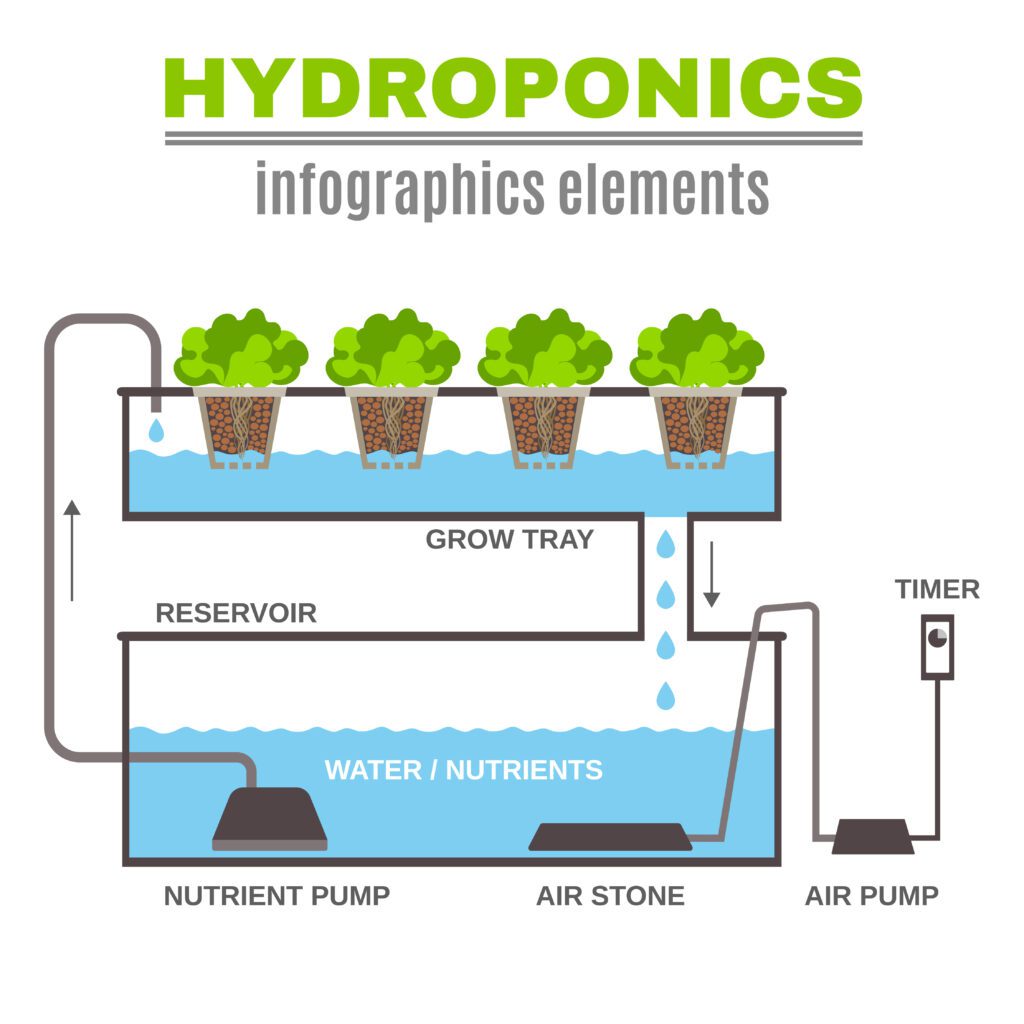
IV. Promoting Seed Germination and Plant Propagation
Is Hydrogen Peroxide Good for Plants? Promoting Seed Germination and Plant Propagation is a critical aspect of successful gardening, whether you are working with traditional soil or utilizing hydroponic systems. By facilitating faster and healthier seed germination, you can jumpstart the growth process and ensure the establishment of robust plants.
One way to achieve this is by providing the ideal growing conditions for seeds. Maintaining an optimal temperature, humidity, and light level can significantly enhance seed germination rates. Additionally, using a sterile germination medium, such as peat moss or vermiculite, can help prevent the growth of harmful pathogens that may interfere with germination. Furthermore, by carefully selecting and storing high-quality seeds, you can improve the overall success of your propagation efforts. Remember, healthy and viable seeds are more likely to germinate successfully and produce strong, vigorous seedlings.
In addition to germination, accelerating root development in cuttings and transplants is essential for successful plant propagation. The strength and health of the plant’s root system play a crucial role in its ability to establish itself in its new environment. To encourage root growth, one effective method is the use of rooting hormones. These hormones contain auxins, which stimulate root development and increase the chances of successful propagation. Moreover, supporting the plant with proper irrigation and providing sufficient nutrients will help the root system establish quickly, allowing the plant to adapt and thrive in its new location. By carefully following proper techniques and providing the necessary conditions, you can foster robust root development in cuttings and transplants, ensuring their survival and continued growth.
A. Facilitating faster and healthier seed germination
Is Hydrogen Peroxide Good for Plants? Seed germination is a crucial stage in the growth process of plants, and facilitating faster and healthier germination is a goal for every gardener. By providing the optimal conditions and nutrients, we can ensure that our seeds sprout quickly and develop into robust seedlings. One key factor in promoting successful germination is maintaining a consistent moisture level in the germination environment. Seeds require moisture to soften their seed coat and activate the enzymes responsible for germination. Therefore, it is essential to keep the germination medium evenly moist but not waterlogged. Excessively wet conditions can lead to the development of mold and fungi, which can hinder germination and harm seedlings.
B. Accelerating root development in cuttings and transplants
Accelerating root development is crucial when it comes to cuttings and transplants in hydroponic and soilless growing systems. This process allows for faster establishment of plants and helps ensure their overall success. By implementing effective techniques, gardeners can optimize root growth, resulting in healthy and robust plants.
One method to expedite root development in cuttings and transplants is by utilizing rooting hormones. These hormones contain auxins, which are plant growth regulators that stimulate cell elongation and division. They encourage the formation of adventitious roots and root hairs, promoting faster and more extensive root development. The application of rooting hormones can significantly enhance the success rate of cuttings and transplants, allowing them to establish themselves quickly in their new environment.
Furthermore, maintaining optimal environmental conditions is vital for accelerating root development. Providing the right temperature, humidity, and light levels can create an ideal environment for root growth. Warm temperatures between 65-75°F (18-24°C), along with a relative humidity of around 70-80%, can promote the emergence and elongation of roots. Additionally, providing adequate lighting with the right spectrum and intensity can stimulate root growth and prevent issues such as leggy growth. Ensuring that cuttings and transplants receive these optimal conditions will maximize their potential for root development and overall plant vigor.
V. Maintaining Optimal Oxygen Levels in Hydroponic Systems
Is Hydrogen Peroxide Good for Plants? Maintaining optimal oxygen levels in hydroponic systems is crucial for ensuring the health and vitality of plants. Is Hydrogen Peroxide Good for Plants? As we know, plants require oxygen to carry out various physiological processes, especially respiration. In traditional soil-based gardening, oxygen naturally diffuses through the pore spaces in the soil, allowing roots to access the necessary oxygen. However, in hydroponic systems where plants are grown without soil, it becomes essential to actively provide oxygen to the plant roots.
One effective method of oxygenating hydroponic solutions is the use of air stones or diffusers. These devices release tiny bubbles of air into the nutrient solution, promoting circulation and oxygenation. By increasing the dissolved oxygen content, air stones help prevent anaerobic conditions that can lead to root suffocation and plant decline. Additionally, the movement created by the bubbles helps to dislodge any built-up debris on the roots, ensuring better nutrient uptake. Regularly monitoring oxygen levels and adjusting the use of air stones accordingly is paramount in maintaining optimal conditions for hydroponic plant growth.
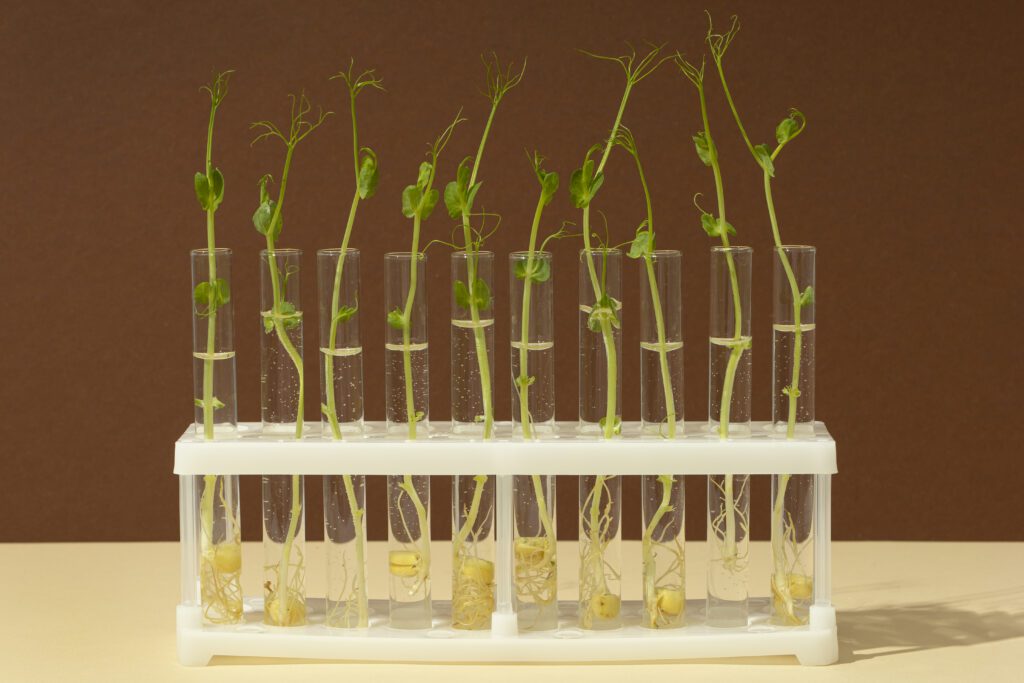
A. Oxygenating hydroponic solutions for thriving plant growth
Hydroponic systems provide an innovative approach to plant cultivation, allowing for thriving growth in controlled environments. Is Hydrogen Peroxide Good for Plants? One crucial factor for successful hydroponic gardening is ensuring optimal oxygen levels in the nutrient solution. Oxygenation of hydroponic solutions is vital as it directly impacts plant health, nutrient uptake, and overall growth. When roots are adequately supplied with oxygen, they flourish, leading to vibrant and robust plants.
Is Hydrogen Peroxide Good for Plants? The oxygenation process involves introducing oxygen into the nutrient solution, promoting a constant supply of oxygen to the roots. This can be achieved through various methods, such as using air stones or diffusers, which release tiny bubbles of oxygen into the solution. Another effective method is employing oxygen generators, which infuse the solution with oxygen-rich air. By oxygenating the hydroponic solution, the risk of anaerobic conditions is minimized, ensuring that plants receive the necessary oxygen for their metabolic processes. Additionally, oxygenation enhances nutrient absorption by the roots, enabling plants to effectively utilize the provided nutrients for optimal growth.
Preventing anaerobic conditions and root suffocation
Preventing anaerobic conditions and root suffocation is crucial in hydroponic systems to ensure optimal plant growth and productivity. When oxygen levels in the nutrient solution are low, plant roots can become deprived of oxygen, leading to root suffocation and reduced nutrient uptake. This can result in stunted growth, nutrient deficiencies, and increased vulnerability to diseases.
To prevent anaerobic conditions, it is essential to maintain a well-oxygenated hydroponic solution. One effective method is to use air stones or diffusers that release oxygen bubbles into the nutrient solution. This helps to create a constant circulation and aeration, ensuring that the roots have access to an adequate supply of oxygen. It is recommended to place the air stones or diffusers strategically to maximize oxygen distribution throughout the system.
Additionally, regularly monitoring and adjusting the pH and temperature of the nutrient solution can also contribute to preventing anaerobic conditions. High pH levels can reduce oxygen solubility in water, while extreme temperatures can negatively impact the oxygen-carrying capacity of the solution. By maintaining the pH within the optimal range (around 5.5 to 6.5) and ensuring the solution’s temperature remains within the recommended limits (around 65 to 75 degrees Fahrenheit or 18 to 24 degrees Celsius), you can minimize the risk of anaerobic conditions in your hydroponic system.
Is Hydrogen Peroxide Good for Plants? By implementing these preventive measures, you can safeguard your plants from root suffocation and promote their overall health and vigor in a hydroponic setup. Maintaining optimal oxygen levels in the nutrient solution is essential for ensuring nutrient uptake efficiency, promoting robust root development, and ultimately achieving thriving plant growth.
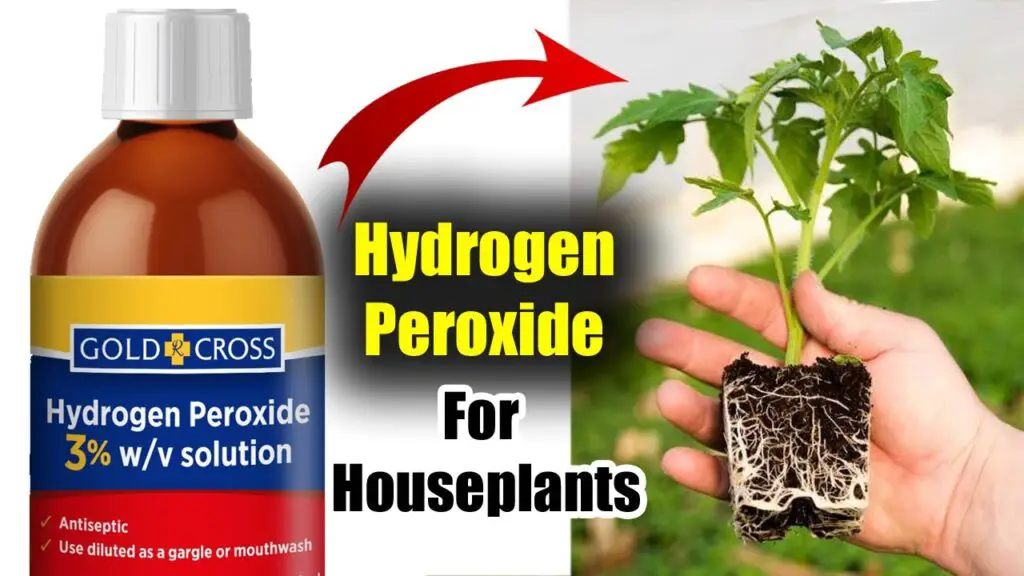
Revitalizing Hydroponic and Soilless Growing Media
Revitalizing hydroponic and soilless growing media is crucial for maintaining healthy plant growth and maximizing crop yields. Over time, these growing mediums can become depleted of essential nutrients and accumulate harmful mineral deposits, leading to nutrient deficiencies and reduced plant vigor. To ensure optimal conditions for your plants, it is important to regularly revitalize and rejuvenate the media.
One effective method for revitalizing hydroponic and soilless growing media is to flush it with clean water. Flushing helps remove excess salts and mineral buildup, preventing nutrient lockout and ensuring that plants have access to the nutrients they need. It is recommended to flush the growing medium thoroughly, allowing the water to run through and wash away any accumulated salts or impurities. This process can be repeated multiple times, depending on the severity of the buildup, until the runoff water is clear.
While flushing is essential, it is also advised to periodically replace the growing medium altogether. Is Hydrogen Peroxide Good for Plants? This allows for a complete rejuvenation of the nutrient content and eliminates any potential issues with mineral accumulation. When replacing the medium, it is important to choose a high-quality substrate that provides proper aeration, drainage, and water-holding capacity. Additionally, incorporating organic matter or beneficial microorganisms into the new medium can help enhance nutrient availability and promote root health. By regularly revitalizing the growing media, gardeners can create a favorable environment for plant growth and ensure the success of their hydroponic or soilless gardening endeavors. Though you have questions That Is Hydrogen Peroxide Good for Plants?
A. Removing mineral buildup and preventing nutrient lockout
Removing mineral buildup and preventing nutrient lockout are crucial aspects of maintaining the health and productivity of hydroponic and soilless growing systems. Over time, minerals and salts can accumulate within the growing media, leading to nutrient imbalances and reduced nutrient availability for plants. This buildup can hinder nutrient uptake and result in deficiencies or toxicities that can negatively impact plant growth and development.
One effective method for addressing mineral buildup is through regular flushing of the growing media. Is Hydrogen Peroxide Good for Plants? Flushing involves saturating the growing media with a specified volume of water to dissolve and wash away excess minerals and salts. The process helps restore optimal nutrient availability by preventing nutrient lockout, a situation where plants are unable to access essential nutrients due to high concentrations of certain minerals. By removing accumulated minerals, flushing not only rejuvenates the growing media but also ensures a continuous supply of balanced nutrients for plants, promoting healthy growth and preventing nutrient deficiencies. Regular monitoring of electrical conductivity (EC), pH levels, and nutrient levels in the growing media can provide valuable insights into the need for flushing and help maintain optimal conditions for plant growth.
Though you have any questions That Is Hydrogen Peroxide Good for Plants? How does hydrogen peroxide help prevent nutrient lockout in hydroponic systems?
Hydrogen peroxide can help prevent nutrient lockout by removing mineral buildup in the growing media, allowing nutrients to be more readily available to the plants.
Can hydrogen peroxide be used to prevent fungal infections in hydroponic systems?
Yes, hydrogen peroxide has antimicrobial properties that can help mitigate root rot, fungal infections, and other plant diseases in hydroponic systems.
How does hydrogen peroxide accelerate seed germination?
Hydrogen peroxide can facilitate faster and healthier seed germination by providing oxygen to the seeds, promoting root development, and preventing the growth of harmful pathogens.
Can hydrogen peroxide be used to oxygenate hydroponic solutions?
Is Hydrogen Peroxide Good for Plants? Yes, hydrogen peroxide can be used to oxygenate hydroponic solutions, ensuring optimal oxygen levels for thriving plant growth and preventing anaerobic conditions that can suffocate the roots.
How does hydrogen peroxide revitalize hydroponic and soilless growing media?
Hydrogen peroxide helps remove mineral buildup in the growing media, preventing nutrient lockout and revitalizing the media for improved plant growth and nutrient absorption.
Hope you can understand that Though you have questions That Is Hydrogen Peroxide Good for Plants?

